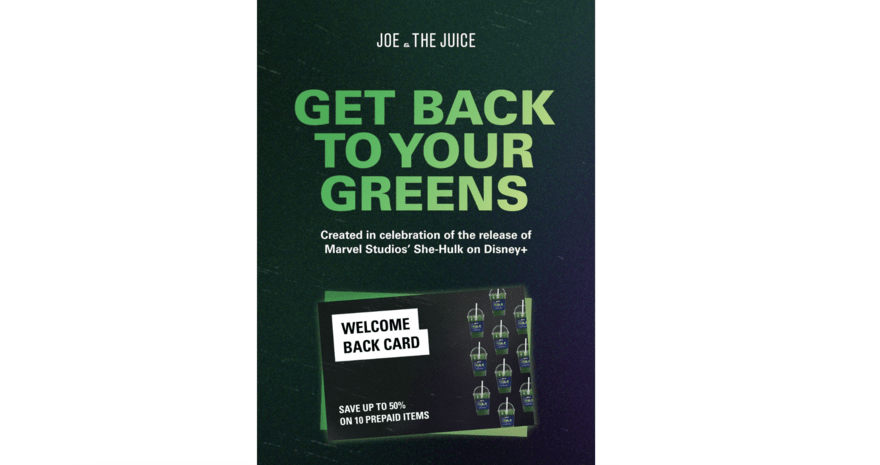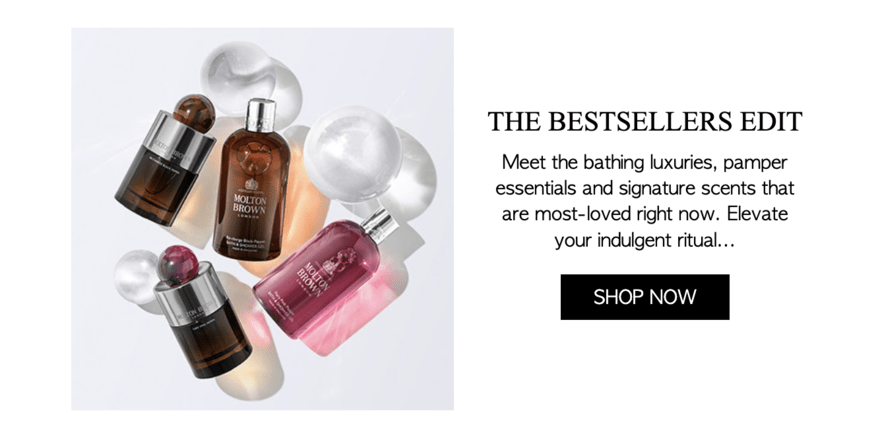How to Write a Marketing Email: 10 Steps to Great Emails
If you click to purchase a product or service based on our independent recommendations and impartial reviews, we may receive a commission. Learn more
Email marketing has become a mainstay of digital marketing strategies for many online brands, but writing a winning email isn’t necessarily easy.
Getting your email content just right is a balancing act. There’s a lot to think about and if you’re not quite hitting the spot and getting the conversions you want, it can be easy to give up.
Luckily, there’s no need to walk away from your email marketing dreams just yet because our team of experts are on hand with these 10 steps on how to write a marketing email.
What is Email Marketing?
Email marketing is the strategy of communicating with your audience via email, allowing you to send commercial messages directly to their inboxes.
Brands of all shapes and sizes can benefit from an email marketing strategy. Email marketing content spans an entire range of communications, including product or service showcases and brand messaging.
Email marketing works by users signing up for your email list. Once signed up, you can then send them targeted emails and content.
When it comes to sending out emails to your customers, there are an array of different types of content you can send including:
- Newsletters – Newsletters are distributed regularly to your subscription list and usually feature company updates and brand stories.
- Welcome emails – Welcome emails are sent when a user signs up to your email list. Many brands choose to include a welcome discount to encourage sign-ups and sales.
- Abandoned cart – Abandoned cart emails are sent to users who have added items to their online basket but are yet to complete the checkout process. They act as a way to encourage users to come back and complete their purchases.
- Sales and promotions – Sales and promotion emails showcase special deals and offers to encourage users to visit your online store and make a purchase.
Benefits of Email Marketing
There are various benefits to email marketing which is what makes them such a popular choice for brands, and you’ll get to reap the rewards if you learn how to write a good marketing email.
Some of those email marketing benefits include:
- The cost of running email marketing campaigns is relatively low compared with other marketing tactics
- Allows you to build a relationship with your customers
- Can help to drive traffic to your website
- Deliver targeted messages to key audience segments
- Easy to measure and track results
10 Steps to Writing a Great Marketing Email
The best email marketing campaigns have a clear tone and message, and they’re optimized to result in conversions.
Follow these tips to get to grips with how to write a great marketing email.
#1. Write a Catchy Subject Line
The best place to start with writing a good marketing email is the subject line.
The subject line is the first part of your email that a user is going to see, and that subject line is going to be what convinces them to either open your email or send it straight to the trash folder.
People open emails that sound interesting, that sound like they’ll offer them some benefit and that, most importantly, don’t sound like spam.

The best subject lines grab the recipient’s attention – they’re informative, yet short and catchy.
Don’t be tempted to include all of the information in your subject line. For example, if you’re running a sale you’re going to want to opt for A, not B:
- “50% sale starts now!”
- “Our sale starts now with 50% off all of the items listed on our website!”
#2. Don’t Forget the Preview Text
It’s not just the subject line that recipients see before they’ve opened your email either. Nowadays most email providers include a line of preview text too.
The preview text provides users with more information about what the email content includes.
Usually, the preview text is made up of the first line of content from the main email, so be sure to craft this carefully when planning and writing your content.
Email preview text tends to range between 30 and 140 characters depending on the email provider your recipients use.
Advice from the Experts
Top Tip: When it comes to the preview text, make sure you don’t include any links, icons, or other features that won’t display properly.
#3. Personalize Your Emails
Personalization isn’t just a top tip for how to write a marketing email, it’s a rule of thumb for marketing strategies on the whole.
When it comes to email marketing, however, a little personalization can have a major impact on stats, such as your open and click-through rates.
Simply including the recipient’s name in the subject line or preview text helps to grab their attention and entice them to click.
Personalizing your emails goes even further than that, however. By segmenting your audience into key demographics, you can send out personalized content.
For instance, if a user has previously bought a particular item, you can send out personalized emails showcasing similar or complementary products.
You can send different emails depending on various factors including age, location, and buying history.
#4. Write for the Web
When writing marketing email copy you should approach it in a similar way to writing web content.
Therefore your content should be concise, use short one- or two-sentence paragraphs, and stick to a single theme per section.
Bullet points and subheadings are also a great way to split your content up into more digestible chunks.
Just like with web copy, user attention spans are often short – lengthy streams of copy will be off-putting and go unread.
#5. Know Your Goal
We recommend sticking to one clear goal per email to make writing your email content as straightforward as possible, giving you the best chance of success.
When planning out your email content, think clearly about the action you want the user to take at the end. Do you want them to visit your website and make a purchase? Follow you on social media or share your content?
Whatever it is, always write with your goal in mind and ensure that goal is accurately portrayed to the audience.
Advice from the Experts
Top Tip: Remember that not every email needs to have the goal of making a sale. Boosting brand awareness is just as important when it comes to growing your brand online.
#6. Include Your Brands Personality
One of the great things about marketing emails is that they can be a little less formal than other methods of customer communication.
You can let the personality of your brand shine through in both the written words and the images you use.
Include branding across your emails to keep them consistent with the rest of your marketing.
Adding personality and a brand voice to your emails will make recipients feel like they’re communicating with an actual person, not just another corporate entity. Your emails will stand out from the crowd in their inbox!
#7. Know Your Audience
Getting to know your audience and understanding what they want, and don’t want, is important if you want your email marketing to be a success.
Take the time to monitor how users behave on your website and their buying habits to understand what content to target them with.

You can also keep track of how they interact with your emails. For example, are they opening them? If they open them, are they taking action?
Once you’ve understood this you’ll have a better idea of what content they enjoy and what content gets marked as spam.
#8. Include a Clear CTA
The CTA (call to action) is one of the most important parts of your marketing email.
It’s one thing for a user to receive and read your emails, but what do you want them to do once they’ve reached the end?
CTAs can be anything from visiting your website, making a purchase, or using a discount code, to following you on social media and sharing your branded hashtag.

Your CTA is what will prompt users to convert so getting it right is essential. Stick to just one or two CTAs per email so that you don’t confuse readers and can keep the journey clear and concise.
Find Out More
Looking for inspiration? We’ve put together 25 examples of Calls To Action for Emails for you to try, plus tips on how to use them effectively.
#9. Don’t Spam
Probably the worst thing you can do when sending out marketing emails is to spam your audience.
We’ve all been there… when you signed up for an email list only to find your inbox getting bombarded with marketing emails every five minutes.
Having your emails marked as spam by users can have a major impact on the success of your email campaigns.
So how can you ensure your emails aren’t viewed as spam?
- Ensure you’ve created an appropriate email schedule
- You don’t need to be sending out emails every day, in fact even one a week can be overkill if you don’t have enough to say. Try to aim for at least 2-3 emails per month at first, before moving to a weekly schedule once you’ve amassed enough content.
- Only send emails when you have worthy content
- Users will be able to tell straight away when you’re writing for the sake of it. In this case, quality is better than quantity.
#10. Test Your Emails
Once you’ve written your marketing emails you can test them to see how your audience responds to your content.
The best way to do this is via A/B split testing. With this method, you split your audience into 3 groups: A, B, and C. You create one email subject line and content for group A and another for group B.
Keep the content similar but change elements, such as the subject line, preview text, and CTA.
You can then see which of the two, A or B, proves the most successful with recipients. Once you’ve assessed the stats you can then send the best-performing email to the rest of your audience, aka group C.
Testing your emails is a great way to monitor their success and ensure you’re optimizing your email content for the very best results.
How to Write a Marketing Email: Summary
So there we have it! Our ten top tips for writing a marketing email.
As you can see from this list, there’s a lot of thought that goes into writing a marketing email – much more than you probably use when writing normal emails to colleagues and friends!
That doesn’t mean it needs to be hard though. With a solid email strategy and calendar in place, you can put together marketing emails that are sure to entertain and inform your audience and lead to those all-important conversions.
If you’ve found this article on how to write a marketing email useful be sure to let us know in the comments!

Leave a comment